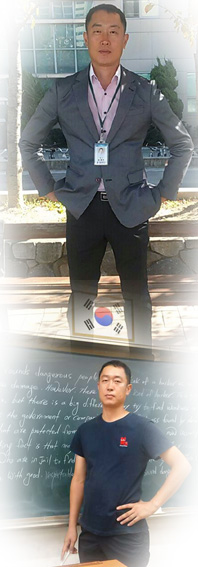[고1 실용영어2 천재(김진완) 3과 본문(5) - 해설: 손범식]
[Osechi, A Feast of Colors]
14. [Osechi is a traditional Japanese food eaten from January 1 to January 7 to celebrate the new year. Osechi differs in flavor and ingredients from one region to the next. Common foods for osechi are broiled fish cakes, simmered black soy beans, and red or white herring roe, which symbolize good health, a good harvest, and prosperity.]
※a traditional Japanese food (which is) eaten from January 1 to January 7:1월 1일부터 1월 7일까지 먹는 전통음식 ※a traditional Japanese food:전통일본음식(traditional:전통적인) ※주격관계대명사+be동사 생략  (which is). ※from A to B: A에서 B까지 ※to celebrate the new year:새해를 기념하기 위하여(목적을 나타내는 부정사의 부사적 용법) ※differ in: ~대해 다르다. ※flavor and ingredients:맛과 재료
(which is). ※from A to B: A에서 B까지 ※to celebrate the new year:새해를 기념하기 위하여(목적을 나타내는 부정사의 부사적 용법) ※differ in: ~대해 다르다. ※flavor and ingredients:맛과 재료  ※from one region to the next:지역마다(region:지역, 지방) ※Common foods for osechi: Osechi를 위한 평범한 음식 ※broiled fish cakes:구운 물고기 떡(broil:굽다) ※simmered black soy beans:끓여진 검정 콩(simmer:부글부글 끓다) ※red or white herring roe:빨간 또는 흰 청어알
※from one region to the next:지역마다(region:지역, 지방) ※Common foods for osechi: Osechi를 위한 평범한 음식 ※broiled fish cakes:구운 물고기 떡(broil:굽다) ※simmered black soy beans:끓여진 검정 콩(simmer:부글부글 끓다) ※red or white herring roe:빨간 또는 흰 청어알  ※,which symbolize good health, a good harvest, and prosperity:그것은 건강과 풍년 그리고 번영을 상징하다. ←관계대명사의 계속적 용법(
※,which symbolize good health, a good harvest, and prosperity:그것은 건강과 풍년 그리고 번영을 상징하다. ←관계대명사의 계속적 용법( = and they symbolize~)
= and they symbolize~)
☞Osechi는 새해를 기념하기 위하여 1월 1일부터 1월 7일가지 먹는 전통 일본 음식이다. Osechi는 지역마다 맛과 재료가 다르다. Osechi를 위한 평범한 음식은 구은 물고기 떡, 끓여진 검정콩 또는 청어알인데 이것은 좋은 건강과 풍년 그리고 번영을 상징한다.
15. [With a balance of colors, tastes, and textures, osechi is packed in layered boxes, called jubako.Stacking the boxes signifies piling up good luck for the future. This food is usually made before dawn on New Year's Day and is eaten during the holidays when no one cooks.]
※With a balance of colors, tastes, and textures: 색깔, 맛, 감촉의 균형으로(texture:감촉, 직물, 피륙, 천) ※Osechi is packed: Osechi는 포장된다.(pack:싸다, 꾸리다.) ※layered boxes:층이 있는 상자(layer:층, 층으로 싸다) ※called: ~라고 불리는  ※Stacking the boxes:상자들을 쌓아 올리는 것은(동명사:주어) ※stack:~을 쌓아 올리다 ※signify: ~을 뜻하다, 나타내다(동사)
※Stacking the boxes:상자들을 쌓아 올리는 것은(동명사:주어) ※stack:~을 쌓아 올리다 ※signify: ~을 뜻하다, 나타내다(동사)  ※piling up good luck for the future:미래를 위한 행운을 쌓아 올리는 것(동명사:보어) ※pile up: 쌓다. ※This food is usually made:이 음식은 보통 만들어 진다.(be+p.p:수동) ※before dawn on New Year's Day :새해 첫날 동이트기 전에(dawn:새벽, 동틀녘)
※piling up good luck for the future:미래를 위한 행운을 쌓아 올리는 것(동명사:보어) ※pile up: 쌓다. ※This food is usually made:이 음식은 보통 만들어 진다.(be+p.p:수동) ※before dawn on New Year's Day :새해 첫날 동이트기 전에(dawn:새벽, 동틀녘)  ※is eaten:주어가 음식이므로 수동형임에 주의 ← is usually made와 is eaten은 병렬관계
※is eaten:주어가 음식이므로 수동형임에 주의 ← is usually made와 is eaten은 병렬관계  ※during the holidays when no one cooks:어느 구구도 요리를 하지 않는 휴일동안에
※during the holidays when no one cooks:어느 구구도 요리를 하지 않는 휴일동안에
☞색깔, 맛 그리고 감촉의 균형으로 Osechi는 jubako라고 불려지는 여러겹으로 층이된 상자안에 포장된다. 그 박스들을 쌓아 올리는 것은 미래를 위한 행운을 쌓아 올리는 것을 뜻한다. 이 음식은 보통 새해 첫날의 통이 트기 전에 만들어지고 어느 누구도 요리를 하지 않은 휴일동안에 먹게 된다.
16. [According to Japanese myth, the reason for not cooking is to soothe the fire god, Kohjin, who might be angry if someone used fire so early in the year. Interesting food traditions for new year's celebrations can be found in other parts of the world, too. But there is a remarkable similarity in that people put special meaning and value on New Year's eats and enjoy the cuisines in the company of their family, hoping for a happy year.]
※According to:~에 따르면 ※myth:신화 ※the reason for not cooking:요리를 하지 않는 이유( 동명사의 부정은 동명사 앞) ※to soothe the fire god, Kohjin: 불의 신 Kohjin을 달래기 위해(부정사의 명사적 용법:보어) ※soothe:달래다
동명사의 부정은 동명사 앞) ※to soothe the fire god, Kohjin: 불의 신 Kohjin을 달래기 위해(부정사의 명사적 용법:보어) ※soothe:달래다  ※,who might be angry if someone used fire:누군가 불을 사용하면 화를 낼 것이다. (관계대명사 계속적 용법(
※,who might be angry if someone used fire:누군가 불을 사용하면 화를 낼 것이다. (관계대명사 계속적 용법( =because he might be~) + 가정법 과거) ※so early in the year:정초부터 ※Interesting food traditions for new year's celebrations:새해 의식을 위한 흥미로운 음식 전통(celebrations:축하,의식)
=because he might be~) + 가정법 과거) ※so early in the year:정초부터 ※Interesting food traditions for new year's celebrations:새해 의식을 위한 흥미로운 음식 전통(celebrations:축하,의식)  ※can be found:발견될 수 있다.(수동) ※there is a remarkable similarity:주목할 만한 유사성이 있다. ※similarity:유사성
※can be found:발견될 수 있다.(수동) ※there is a remarkable similarity:주목할 만한 유사성이 있다. ※similarity:유사성  ※in that: ~라는 점에서(that 앞에 유일하게 전치사가 오는 경우: 어법중요) ※New Year's eats:새해의 먹거리(eats:ⓝ식사, 먹거리)
※in that: ~라는 점에서(that 앞에 유일하게 전치사가 오는 경우: 어법중요) ※New Year's eats:새해의 먹거리(eats:ⓝ식사, 먹거리)  ※put, enjoy는 서로 병렬관계 ※cuisine:요리, 요리법 ※in the company of their family:가족과 함께, 가족이 모인 가운데 ←
※put, enjoy는 서로 병렬관계 ※cuisine:요리, 요리법 ※in the company of their family:가족과 함께, 가족이 모인 가운데 ← in the company of = in one’s company: ~와 함께, ~의 면전에서(company:모임,일단,동료. 회사) ※hoping for a happy year:행복한 한해를 소망하면서(분사구문:동시동작 =
in the company of = in one’s company: ~와 함께, ~의 면전에서(company:모임,일단,동료. 회사) ※hoping for a happy year:행복한 한해를 소망하면서(분사구문:동시동작 =  and they hope for~)
and they hope for~)
☞ 일본 신화에 따르면 요리를 하지 않는 이유는 불의 신 Kohjin을 달래기 위한 것이다. 왜냐하면 그 불의 신은 누군가가 정초부터 불을 사용하면 화를 내기 때문이다. 새해 의식을 위한 흥미로운 음식 전통은 세계의 다른 지역에서도 또한 발견될 수 있다. 그러나 사람들이 새해의 먹거리에 특별한 의미와 가치를 두고 행복한 한해를 소망하면서 가족이 모인 가운데 요리를 즐긴다라는 점에 있어서는 두드러진 유사성이 있다.
.gif)


.gif)

